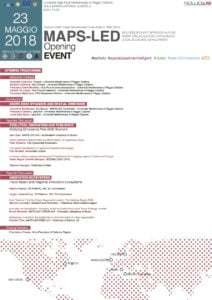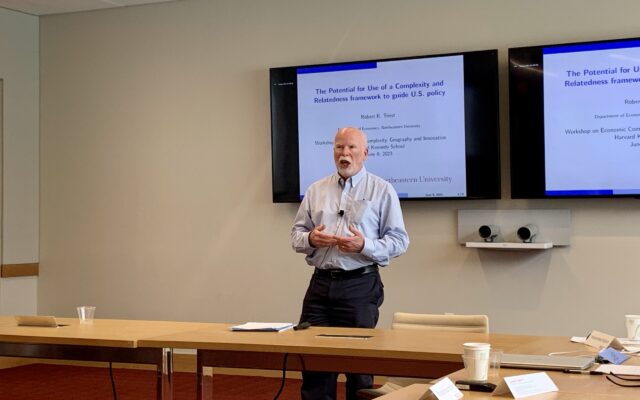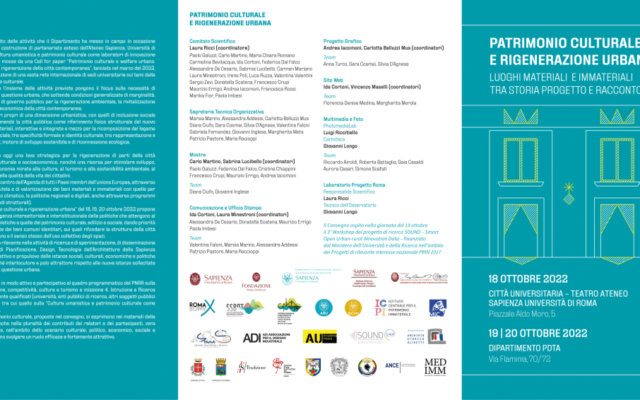
The 3rd edition of the International Symposium “New Metropolitan Perspectives” aims at facing the challenges of Local Knowledge and Innovation dynamics towards territorial attractiveness through the implementation of the Horizon/EU2020 Agenda. The symposium is jointly promoted by CLUDsLab and LaborEst Laboratories of PAU Department, Università Mediterranea of Reggio Calabria (IT), in partnership with a qualified international network of prestigious academic institutions and scientific associations. It represents the conclusive event of the MAPS-LED Research Project (Multidisciplinary Approach to Plan Smart Specialisation Strategies for Local Economic Development) funded by the European Union’s Horizon 2020 Research and Innovation Programme, under the Marie Skłodowska Curie Actions – RISE 2014/2019. The main aim of RISE Actions is to favor the mobility of Experienced and Early Stage Researchers between Europe, Associated and Third Countries.
The project empowers the strong international research network built up with the CLUDs Project (7FP) through the exchange of researchers, ideas and practices between EU and US. To date, about 40 experienced and early stage researchers benefited of from the Project mobility towards US, at the Northeastern University of Boston, and the San Diego State University and vice-versa. The researchers, coming from the Higher Education Institutions (HEIs) belonging to the MAPS-LED network, had the opportunity to increase their research, training and networking skills thanks to the high exposure to the international scientific community.
The MAPS-LED Symposium represents a fundamental event to disseminate research findings and for stimulating a fruitful debate among scientific and policy-makers’ community. The core of the research activities has earmarked for exploring how Smart Specialisation Strategies (S3) can be implemented by incorporating the place-based approach towards regenerating local economies.
The results coming from the MAPS-LED project research activities stimulated the scientific ground around key elements triggering the change through S3; as well as, the understanding of its (current and potential) limits. The participation of international experts involved in the S3 design and the RIS3 implementation, in addition to the academic contributions coming from different disciplines, highlighted the potentials of the projects’ proposed ‘multidisciplinary approach’, allowing to boost up knowledge convergence in an a-sectorial rationale.
The Symposium represents the opportunity to the development of innovation-oriented models for the exploitation and valorization of local assets involving different disciplines and in on a multilevel governance perspective. The contribution offered through the symposium, by either enriching the academic debate and providing evidence-based solutions for the implementation of economic development strategies, is attributed by wide scope and marked cross-cutting dimension.
The structure of the symposium is reflected on a multidisciplinary scale, each session presents topics and arguments which are, to some extent, ingrained within overall framework of the MAPS-LED project, while they are expected to open up windows of opportunity for further studies and research.
Consistently, the Symposium focuses on analyzing, at different scales and under numerous perspectives, the strategies, objectives, and impacts of local economic development and innovation processes, to achieve a smart sustainable and inclusive growth.
Summing-up, the Symposium, and the contributions to its sessions, manifest the effort to re-proposing the multidisciplinary approach implemented within the MAPS-LED research project in a conference-based-dimension.
The participation to the Symposium of international experts as well as academics from different disciplines provides interesting insights for the RIS3 evaluation and monitoring processes for the post 2020 programming period. The multidisciplinary approach to plan smart specialisation strategies proposed with the MAPS-LED project emerged as crucial to properly pursue the local economic development in the S3 perspective. Hence, the MAPS-LED project appears at forefront into this research domain.
WEB
http://www.isth2020.unirc.it



